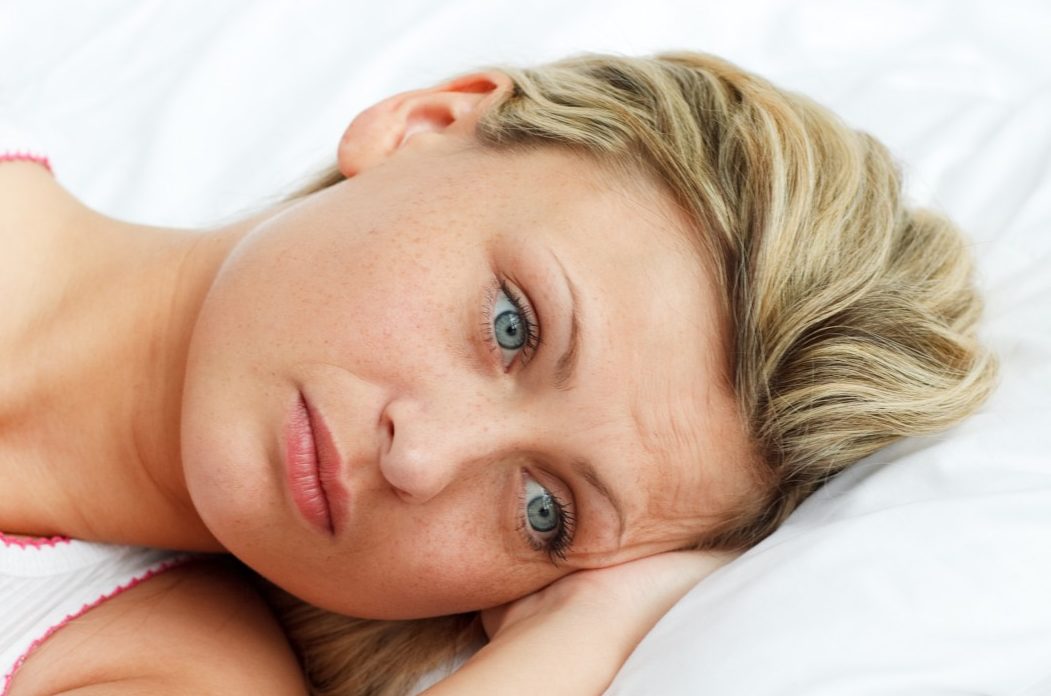Sleep Deprivation Symptoms

Some sleep deprivation symptoms, like daytime drowsiness, are obvious. Others are surprising and can mean skimping on sleep is putting your health at risk.
Sleep deprivation is so widespread odds are you, or someone you know, is not getting enough sleep. The Centers for Disease Control and Prevention (CDC) reports more than a third of U.S. adults usually get fewer than the seven to nine hours of sleep health experts recommend.
If you don’t feel rested during the day most of the time, you probably already know you could use some extra shuteye but can’t seem to fit it into your schedule. You may figure you’ll catch-up on slumber eventually — only you never do. Like countless other Americans, you may turn to pick-me-ups like drinking coffee all day to make up for a lack of sleep, or perhaps you assume feeling tired is simply part of modern life.
But ignoring or not recognizing sleep deprivation symptoms isn’t a good idea. It could be dangerous to your job performance, your relationships, and your health.
What’s more, it’s not only the hours you sleep but the quality of your sleep that determines whether you are sleep deprived, according to the CDC.
YOU MIGHT ALSO LIKE: Why Is Sleep Important?
Sleep deprivation symptoms can mean danger ahead
Insomnia is a common cause of sleep deprivation, and it can take several forms, the CDC points out. You can find it difficult to fall asleep or to stay asleep. But insomnia also occurs if you wake up too early in the morning and can’t get back to sleep.
Whatever the type of insomnia you have, the result is the same, sleep deprivation symptoms such as excessive daytime sleepiness and feeling you can’t think clearly.
Even if the clock shows you’ve slept a full eight hours, you can still suffer from poor sleep quality, and that form of sleep deprivation can have serious repercussions.
Research conducted over the past several decades has documented distinctive stages of sleep your brain needs to cycle through for you to have enough quality rest. For instance, some stages of sleep help your brain hold on to memories. You need other sleep stages to feel rested, alert, and energetic the next day, the National Heart, Lung and Blood Institute (NHIBI) explains.
Sleep deprivation symptoms
Signs of poor sleep quality include waking up not feeling rested. The cause may be repeatedly waking from deep sleep without realizing it due to sleep apnea, a condition marked by snoring and gasping for air. Poor sleep habits, such as sleeping in a room with a light or electronic device left on, can also lead to disturbed slumber.
Some symptoms of sleep deprivation — and the consequences — may not be immediately obvious. Not getting enough sleep can lead to mistakes at work that can not only damage your career but also, depending on your job, lead to injury and disability, the CDC points out.
Sleep deprivation is a major factor in many car crashes, too, according to government statistics. In addition to health consequences from accidents, sleep deprivation raises your risk of type 2 diabetes, obesity, and heart disease.
If you find yourself snapping at your spouse, taking unwise risks, and having mood swings, such behavior woes could be symptoms of sleep deprivation. Sleep also affects mood, the NHIBI explains, and insufficient sleep is associated with trouble in relationships, increased irritability, and depression.
If you have sleep deprivation symptoms, get help
Not getting enough sleep can be the result of habitually staying up too late or drinking too much coffee late in the day. But it’s important to consider the ramifications of chronic sleep deprivation and take action to learn what doctors call good sleep hygiene — what you can do to make sure you get a good, restful night’s sleep.
The CDC recommends these self-help measures to beat sleep deprivation:
- Stick to a sleep schedule. Go to bed at the same time each night, and get up at the same time every morning, including on the weekends.
- Keep your bedroom quiet, dark, relaxing, and at a comfortable temperature at bedtime.
- Remove electronic devices from your bedroom, including TVs, computers, and smartphones.
- Avoid large meals, caffeine, and alcohol several hours before it’s time for bed.
- Get some exercise during the day. Research shows it can help you fall asleep more easily at night.
If you can’t figure out why you have symptoms of sleep deprivation, and self-help measures aren’t working, talk to your doctor. Before making a diagnosis of primary insomnia, other potential causes — including side effects from any medications you take, depression, sleep apnea, and other possibly previously undetected conditions — need to be ruled out.
The good news is there are effective treatments that promote regular and adequate sleep, including learning behavioral techniques, relaxation exercises, sleep apnea therapy and, if appropriate for your specific problem, medication.
Updated:
August 08, 2023
Reviewed By:
Janet O’Dell, RN